- In this article, we will focus on finding new, undervalued technology stocks primed to outperform amid the ongoing selloff in the sector.
- Using the Investing Pro+ stock screener, we highlight three companies that are relatively cheap compared to their peers, thanks to strong fundamentals and low valuations.
- Taking that into consideration, Applied Materials, Dell Technologies, and NortonLifeLock fit the bill.
- Looking for more top-rated stock ideas to add to your portfolio? Members of InvestingPro+ get exclusive access to our research tools, data, and pre-selected screeners. Learn More »
Technology stocks have struggled mightily since the start of 2022, as fears surrounding the Federal Reserve’s plans to aggressively tighten monetary policy triggered a broad-based selloff in the sector.
As such, using the Investing Pro+ stock screener, we ran a methodical approach to filter down the 10,000-plus stocks that are listed on U.S. exchanges into a small watchlist of undervalued tech companies with bright growth prospects.
We decided to focus only on stocks with a market cap of $10 billion and above, and a price-to-earnings (P/E) ratio below 20. We then scanned for companies whose InvestingPro Fair Value upside was greater than 40%.
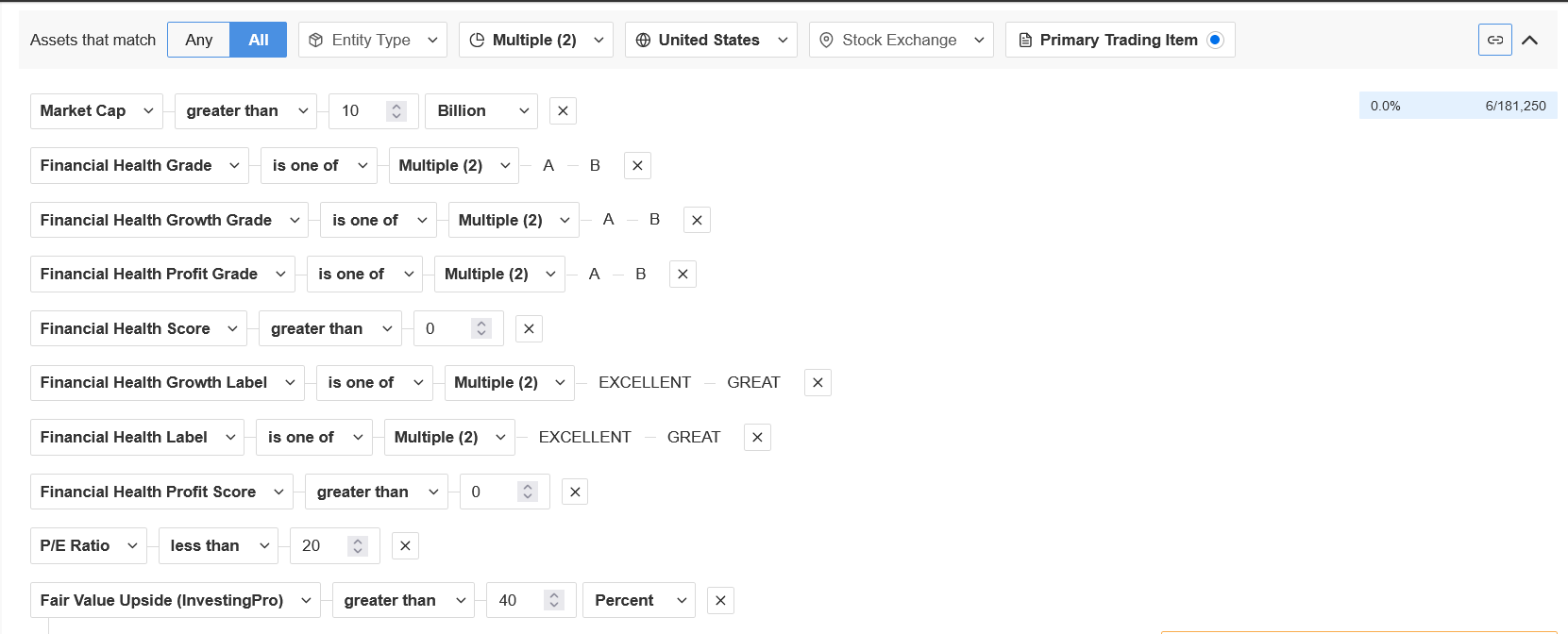
Source: InvestingPro+
Once the criteria were applied, we were left with a total of just six companies on our watchlist.

Source: InvestingPro+
Taking a deeper look, we will break down three of the top picks which are expected to provide some of the highest returns based on the InvestingPro+ models.
1. Applied Materials
- Financial Health Grade: B
- P/E Ratio: 14.7
- Market Cap: $96.2 Billion
- Pro+ Fair Value Upside: +43.9%
Applied Materials (AMAT) is a leading supplier of manufacturing equipment, services, and software to the semiconductor industry.
It also provides products for designing and producing liquid crystal and organic light-emitting diode (OLED) displays, and other display technologies for consumer-oriented devices, such as televisions, smartphones, tablets, laptops, and personal computers.
The Santa Clara, California-based company has struggled this year, trailing both the general Semiconductor Index, as well as the broader market by a wide margin amid global supply chain shortages.
Year-to-date, AMAT has seen its stock tumble by around 31%. Even more alarming, shares of the chip equipment supplier are down roughly 35% since reaching a record high of $167.06 on Jan. 14.
AMAT ended Tuesday’s session at a 13-month low of $108.92, giving the semiconductor equipment maker a market cap of $96.2 billion.
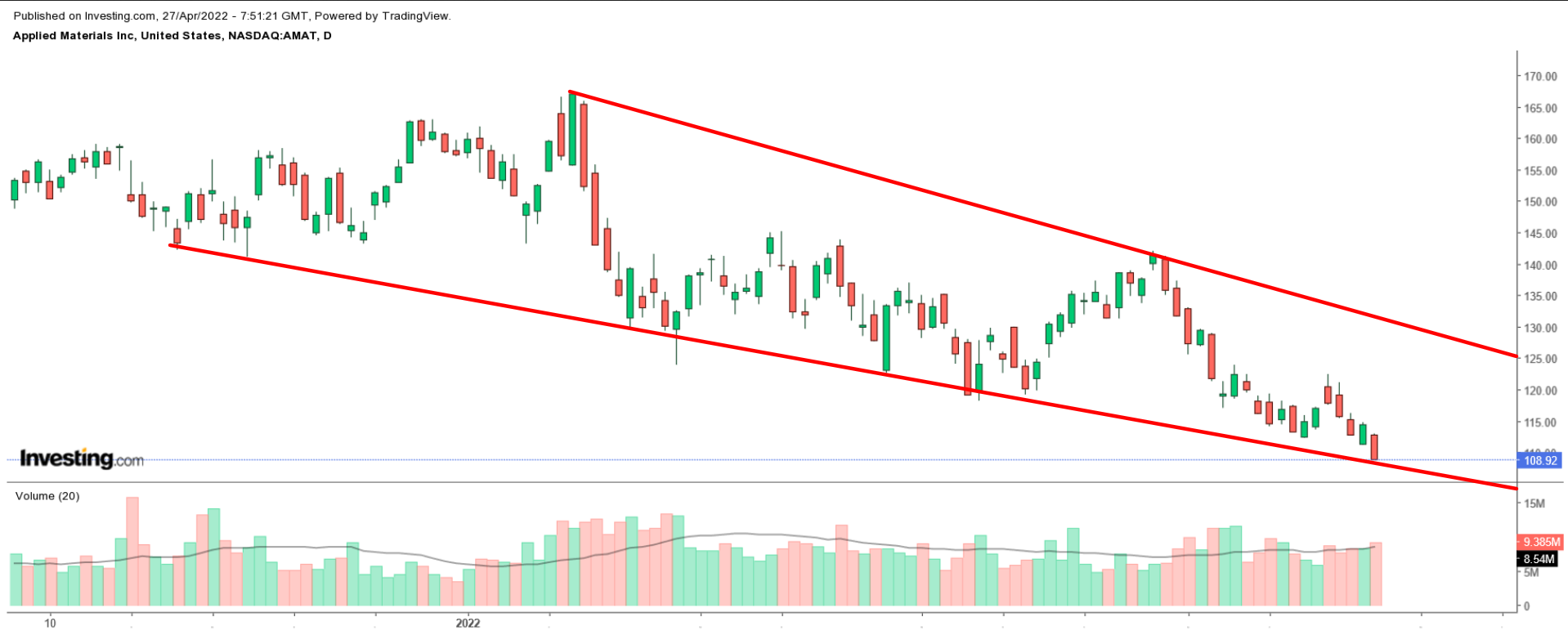
Despite its weak price action, Applied Materials stock appears as a solid value bet for investors looking to play the rebound in the semiconductor industry in the months ahead.
Indeed, AMAT has a comparatively low P/E ratio of 14.7, making it much cheaper than some of its notable peers in the semiconductor group, such ASML Holding (ASML), KLA-Tencor Corporation (KLAC), and Teradyne (TER).
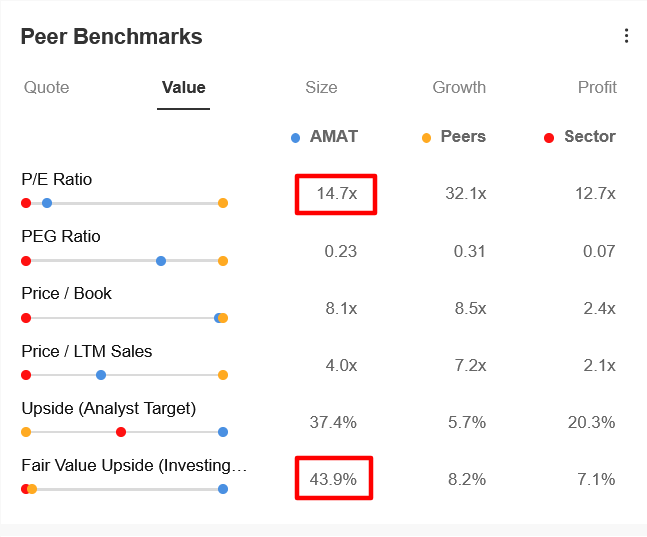
Source: InvestingPro+
Pro+ calls out a few more key insights on the stock, with the share buyback and healthy cash flows points standing out the most:
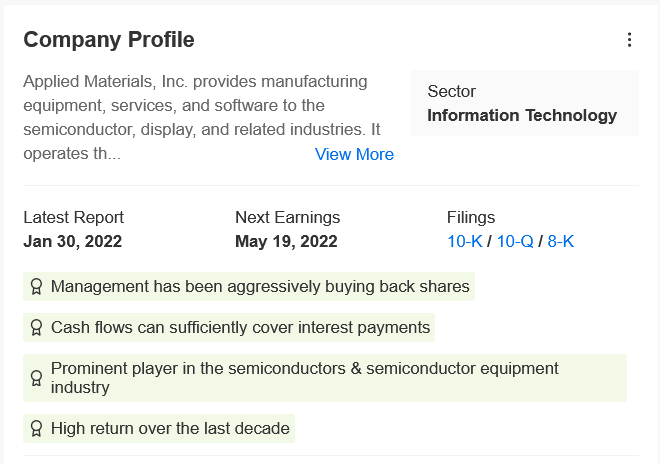
Source: InvestingPro+
Then, Pro+ provides a quick snapshot of the chip gear vendor’s financial health condition, which earned a score of 4/5, thanks to bright profit and sales growth prospects:
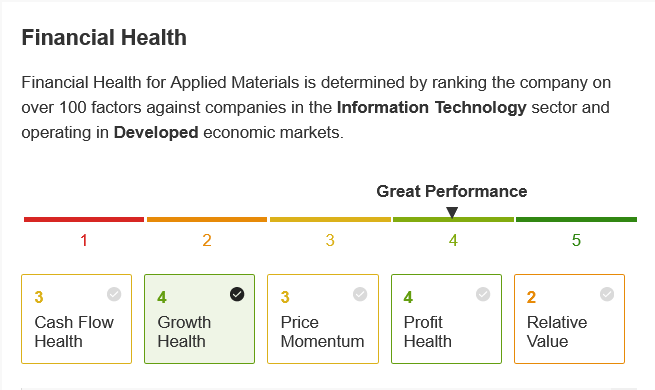
Source: InvestingPro+
At a price point under $110, AMAT comes at an extreme discount according to the quantitative models in InvestingPro, which point to a roughly 44% upside in AMAT shares from current levels over the next 12 months.
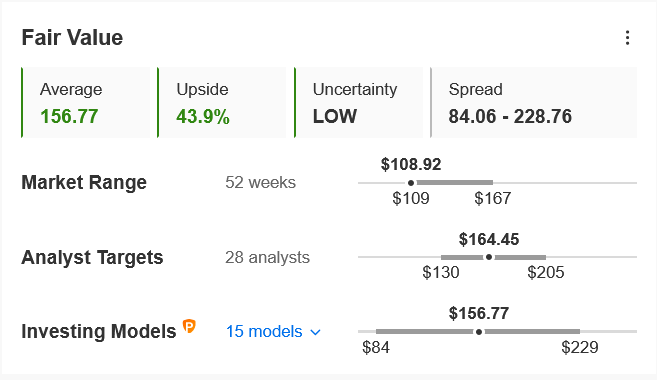
Source: InvestingPro+
Applied Materials, which reported earnings and revenue which easily topped expectations in the previous quarter, next reports financial results after the closing bell on Thursday, May 19.
Consensus calls for earnings per share of $1.90 for its fiscal second quarter, improving 16.5% from EPS of $1.63 in the year-ago period. Revenue is forecast to jump nearly 14% year-over-year to $6.34 billion.
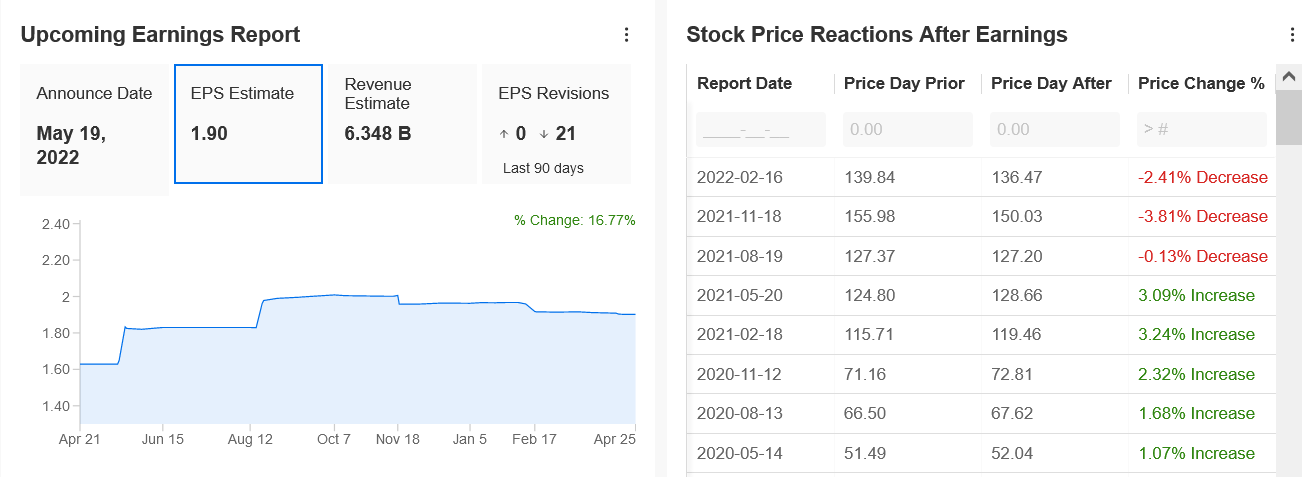
Source: InvestingPro+
2. Dell Technologies
- Financial Health Grade: B
- P/E Ratio: 7.1
- Market Cap: $35.3 Billion
- Pro+ Fair Value Upside: +50.2%
Dell Technologies (DELL), which was formed following a merger between Dell and EMC Corporation in 2016, is a major global provider of information technology solutions.
Dell's variety of products includes personal computers, servers, computer software, computer security and network security, as well as information security services.
Given the fragile sentiment on many top-rated technology names, shares of the Round Rock, Texas-based company have endured some turbulence lately, hitting a series of fresh 52-week lows in recent sessions.
DELL—which is down 17.2% year-to-date—ended at $46.51 last night, earning it a market cap of $35.3 billion. At current levels, shares are roughly 60% below their all-time peak of $115.00 touched in October 2021.
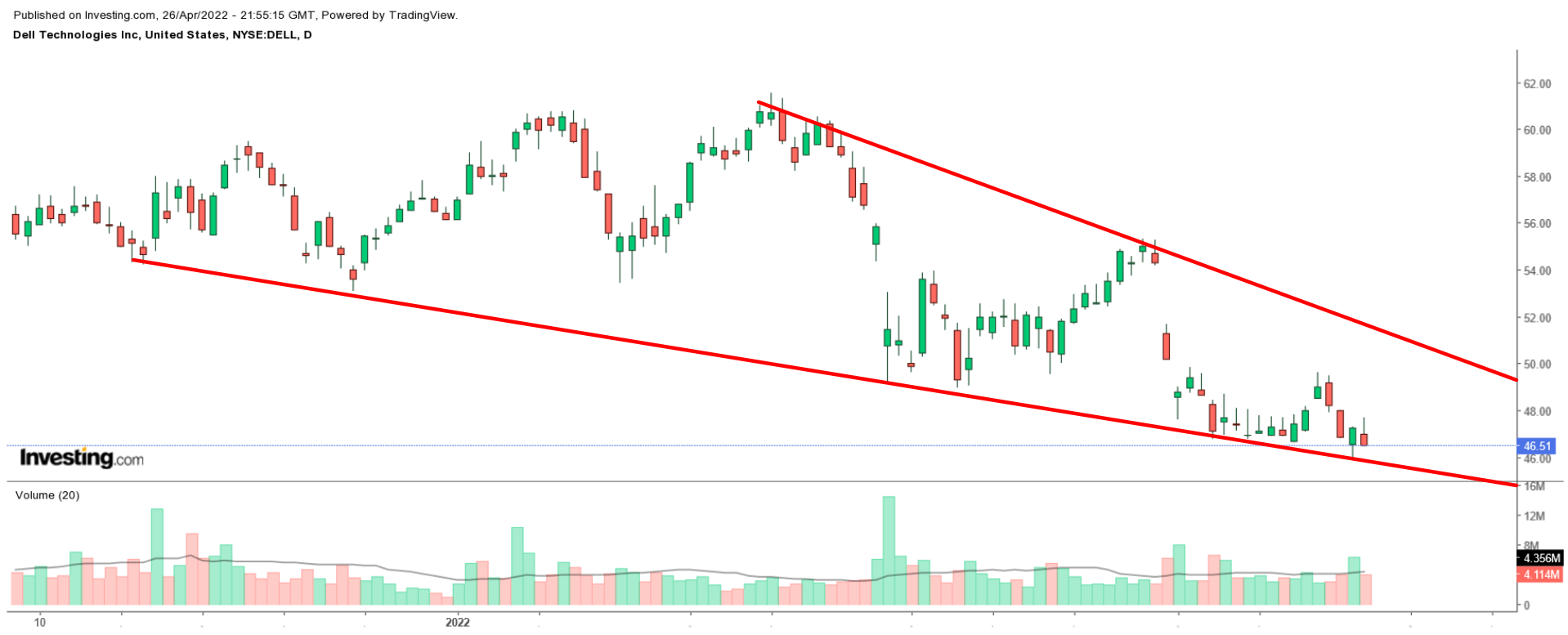
As Pro+ points out, DELL is in great financial health, thanks to strong profit and growth prospects, combined with its attractive valuation.
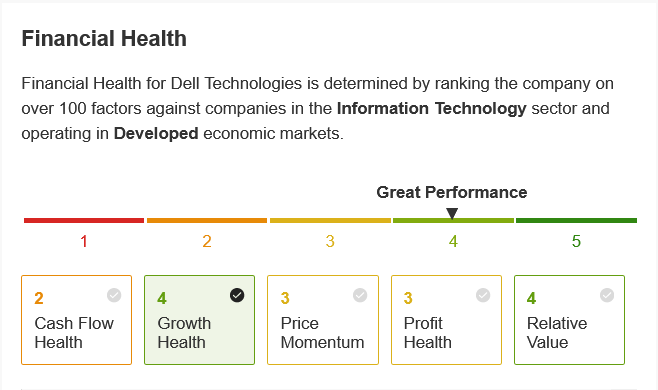
Source: InvestingPro+
It trades at a P/E ratio of 7.1, much lower than the sector median of 12.7 and significantly cheaper when compared to its peers, which possess a collective P/E ratio of 14.7.
In addition, Dell leads the sector for some of its profitability and sales metrics, enjoying revenue growth of nearly 17%, higher than the 12.5% revenue growth recorded by its peers.
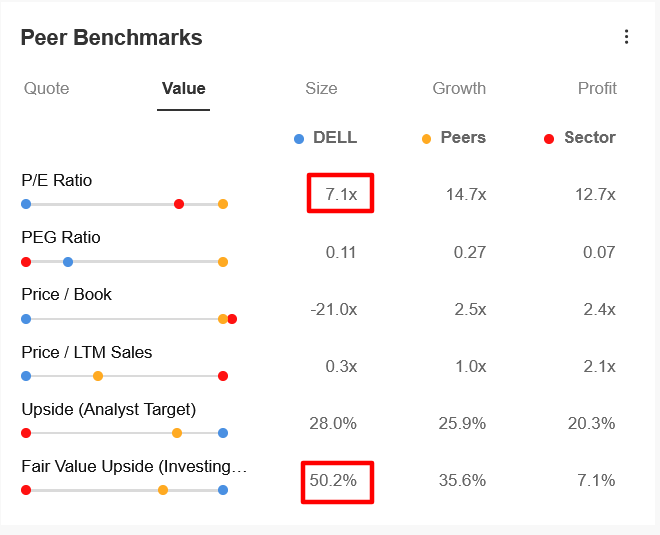
Source: InvestingPro+
Not surprisingly, DELL is undervalued at the moment, according to InvestingPro models and could see an upside of 50% over the next 12 months to its fair value of $69.84/share.
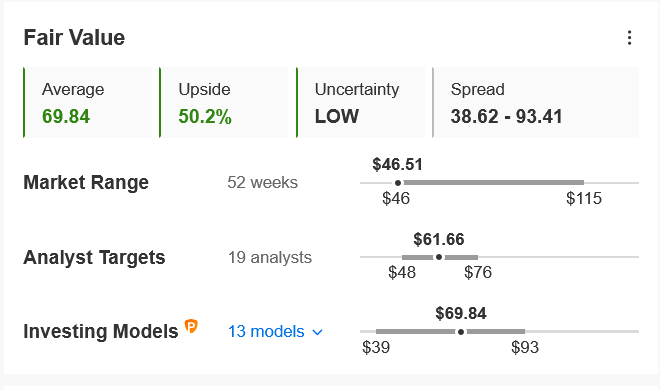
Source: InvestingPro+
Dell is scheduled to report first-quarter financial results after the closing bell on Friday, May 27. Consensus estimates call for earnings per share of $1.40 on revenue of $25.3 billion.
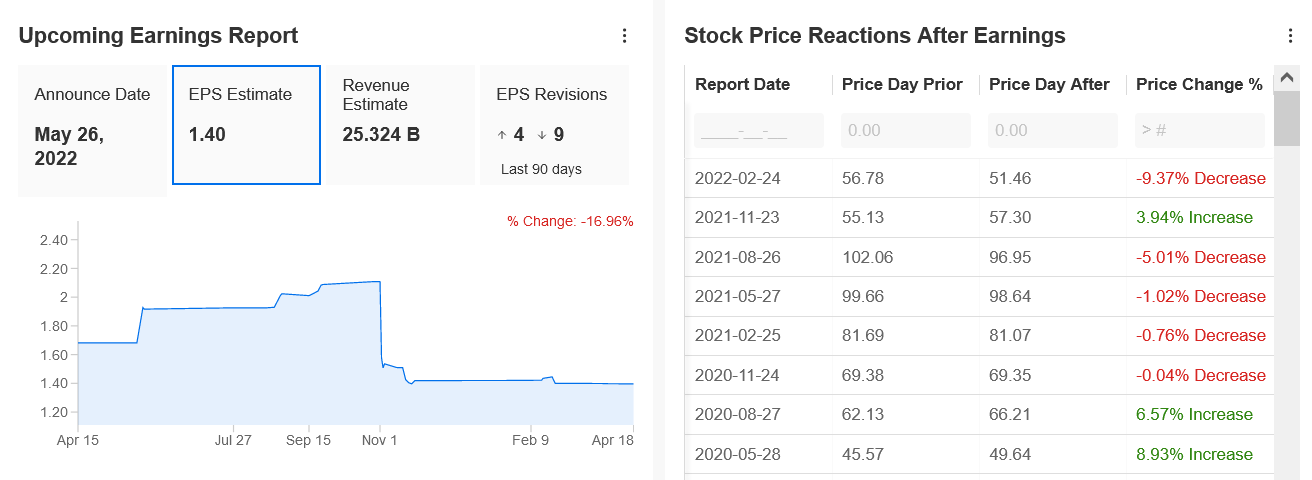
Source: InvestingPro+
3. NortonLifeLock
- Financial Health Grade: B
- P/E Ratio: 16.0
- Market Cap: $14.8 Billion
- Pro+ Fair Value Upside: +41.7%
Formerly known as Symantec Corporation, NortonLifeLock (NLOK), is one of the leading providers of cybersecurity software and services. The Fortune 500 company’s products include Norton 360 Security offerings, Norton Security, Norton Secure virtual private network (VPN), Avira Security, and other consumer security solutions.
The Tempe, Arizona-based firm has benefited from robust demand for its security tools and products amid elevated digital security threats. Despite the ongoing selloff in tech stocks, NortonLifeLock shares have lost just 2% year-to-date, easily outperforming the NASDAQ Composite over the same timeframe.
NLOK soared to an all-time high of $30.92 on Feb. 10; it closed at $25.45 on Tuesday. At current levels, the cybersecurity firm—which is up about 15% over the last 12 months—has a market cap of $14.8 billion.
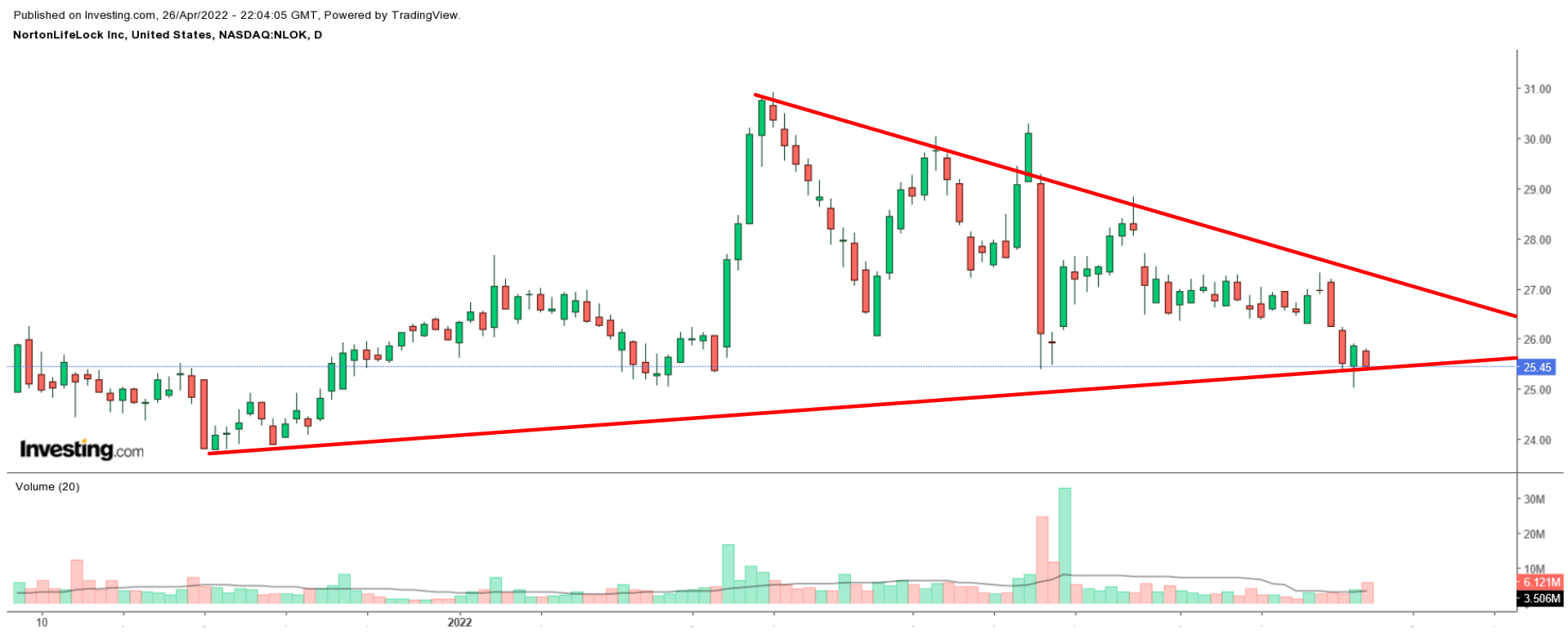
With a Pro+ financial health score of 4 out of 5, and an extremely attractive valuation, NLOK appears to be a good option for investors looking to hedge in the face of further volatility in the months ahead.
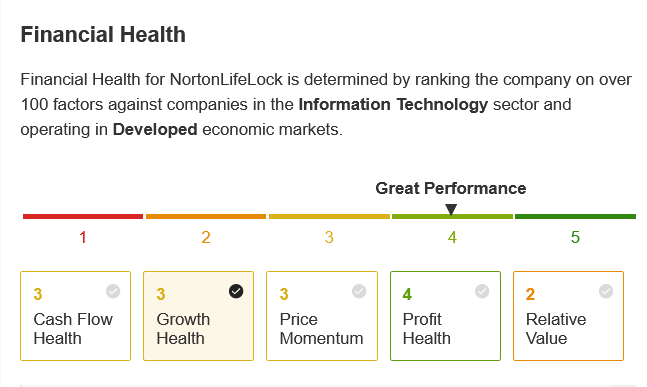
Source: InvestingPro+
Considering the ongoing surge in demand for security software to protect PCs and mobile devices from viruses and cyberattacks, shares of NLOK could see an increase of around 42%, according to the Investing Pro model, bringing it closer to its fair value of $36.06 per share.
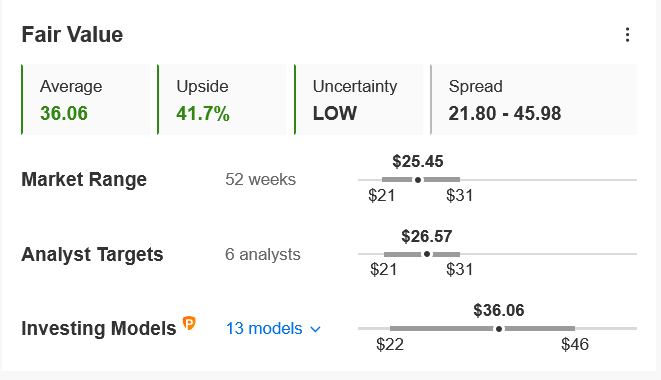
Source: InvestingPro+
Analysts are also optimistic about the software-as-a-service company, citing strong market fundamentals. The average NLOK analyst price target is around $30.00, representing an upside of approximately 16% from current levels over the next 12 months.
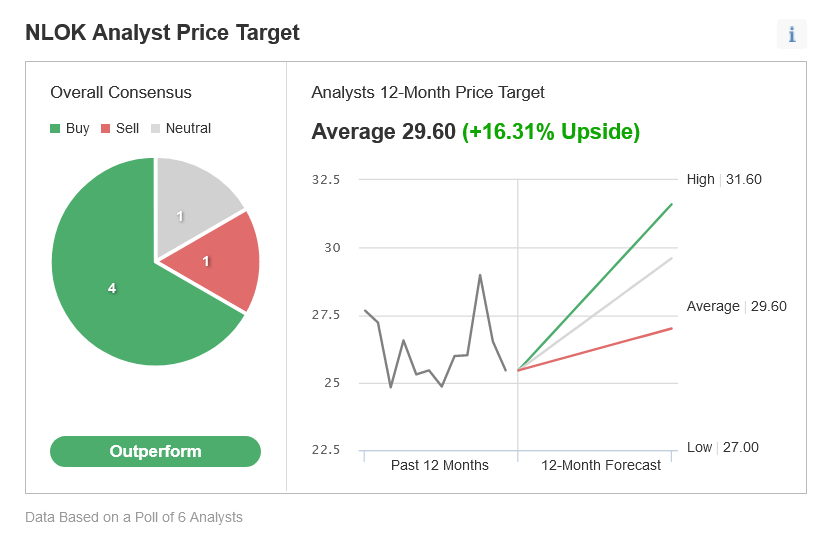
Source: Investing.com
NortonLifeLock is expected to deliver solid earnings and revenue growth when it releases its latest financial results after the closing bell on Thursday, May 5. Consensus expectations call for earnings per share of $0.45 for its fiscal fourth quarter, improving 12.5% from EPS of $0.40 in the year-ago period.
Revenue is forecast to climb about 6% year-over-year to $709.6 million.
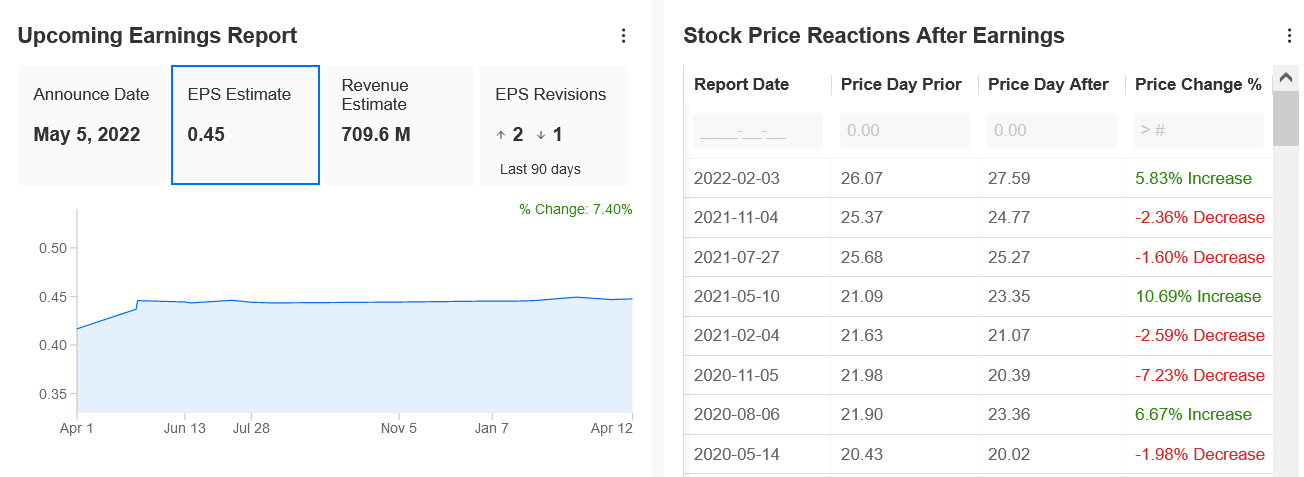
Source: InvestingPro+


